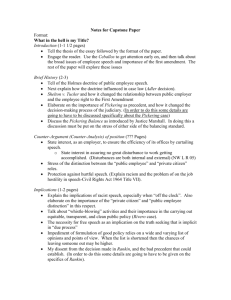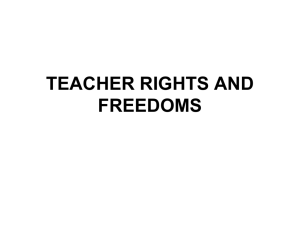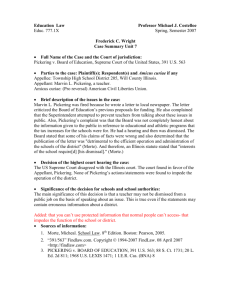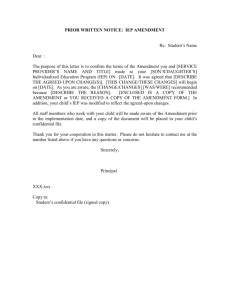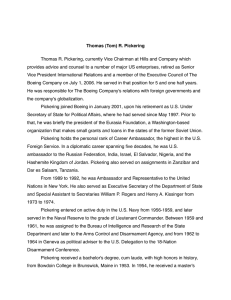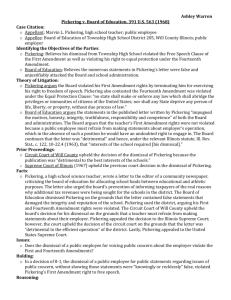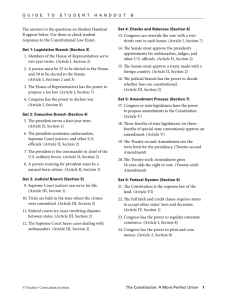Teacher Rights - Pickering v. Board of Ed
advertisement
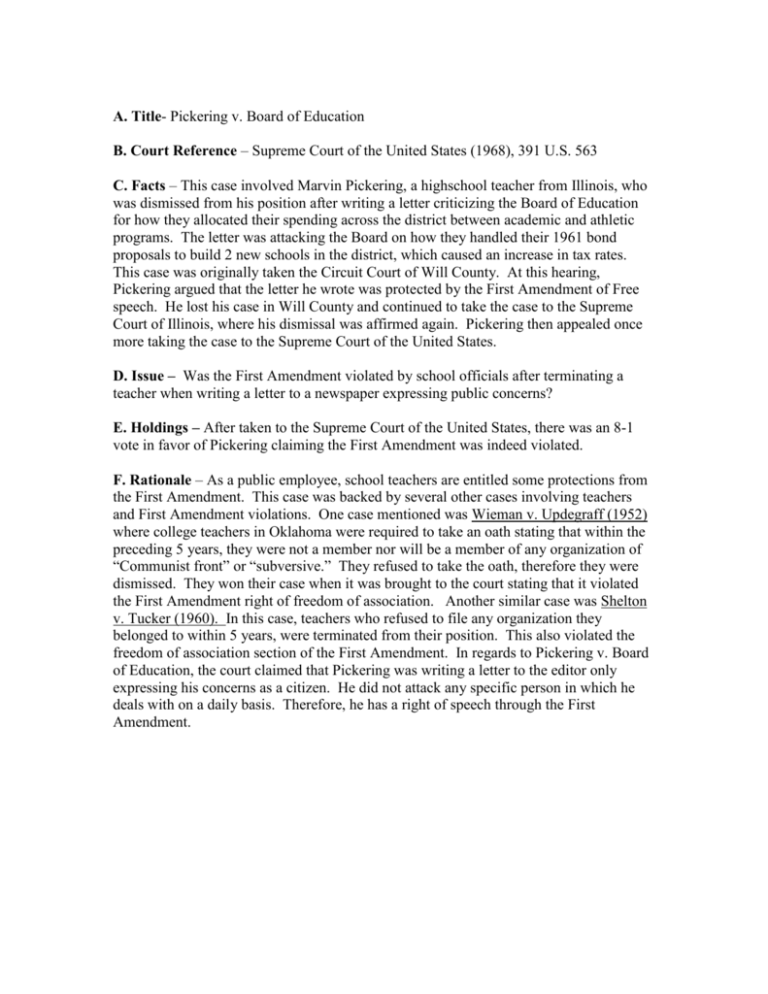
A. Title- Pickering v. Board of Education B. Court Reference – Supreme Court of the United States (1968), 391 U.S. 563 C. Facts – This case involved Marvin Pickering, a highschool teacher from Illinois, who was dismissed from his position after writing a letter criticizing the Board of Education for how they allocated their spending across the district between academic and athletic programs. The letter was attacking the Board on how they handled their 1961 bond proposals to build 2 new schools in the district, which caused an increase in tax rates. This case was originally taken the Circuit Court of Will County. At this hearing, Pickering argued that the letter he wrote was protected by the First Amendment of Free speech. He lost his case in Will County and continued to take the case to the Supreme Court of Illinois, where his dismissal was affirmed again. Pickering then appealed once more taking the case to the Supreme Court of the United States. D. Issue – Was the First Amendment violated by school officials after terminating a teacher when writing a letter to a newspaper expressing public concerns? E. Holdings – After taken to the Supreme Court of the United States, there was an 8-1 vote in favor of Pickering claiming the First Amendment was indeed violated. F. Rationale – As a public employee, school teachers are entitled some protections from the First Amendment. This case was backed by several other cases involving teachers and First Amendment violations. One case mentioned was Wieman v. Updegraff (1952) where college teachers in Oklahoma were required to take an oath stating that within the preceding 5 years, they were not a member nor will be a member of any organization of “Communist front” or “subversive.” They refused to take the oath, therefore they were dismissed. They won their case when it was brought to the court stating that it violated the First Amendment right of freedom of association. Another similar case was Shelton v. Tucker (1960). In this case, teachers who refused to file any organization they belonged to within 5 years, were terminated from their position. This also violated the freedom of association section of the First Amendment. In regards to Pickering v. Board of Education, the court claimed that Pickering was writing a letter to the editor only expressing his concerns as a citizen. He did not attack any specific person in which he deals with on a daily basis. Therefore, he has a right of speech through the First Amendment.
